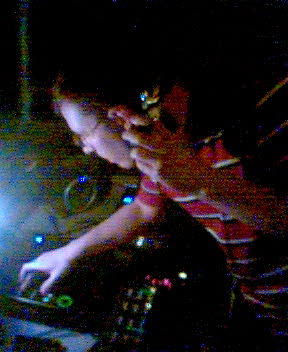Julian Cope is Dead-On
Well, hours after posting about the Andaman islands, and the lessons we can learn from them, I read the head Head himself, Julian Cope's New Year's day address , which serves as the missing half of what I was trying to say.
Quoting John L. Sullivan, an American 19th-century politician, regarding Manifest Destiny and how it relates to Iraq today:
It's clear that what Cope is saying, and in fact what Sullivan said and so many Americans - including, it's obvious, Bush - is so directly related to the lessons of the Andaman's. America has such faith in the equation of civilization with technology with "good" that this culture seems unwilling to give an inch of a chance to "old" and low-tech. Hence our inability to even preserve our miniscule, 200-year-old history and historical sites - nonetheless the culture, history, art, and existence of the indigenous peoples who lived here for millennia before we dominant modern Americans arrived.
The Andaman's and others lived for hundreds of generations before their folktales of great walls of water became useful. We have no idea what purpose is behind the resources left to us by our ancestors in oral history, folk memory, and sacred sites. Imagine the items left to the protagonist by his own self in Philip K. Dick's story (and Woo's film) Paycheck - when the need for our antiquities arises, then we'll know its purpose. "A clear conscience unsullied by the past" - is that what brought about Abu Ghraib? Perhaps not. But that is what will win that atrocity's architect promotion.
Quoting John L. Sullivan, an American 19th-century politician, regarding Manifest Destiny and how it relates to Iraq today:
At the beginning of 2005CE, vestiges of America’s belief in ‘Manifest
Destiny’ are still evident in its government’s perception of the rest of the
world, the ‘Outlands’ if you will. ... evidence is clear that many modern
Americans have ‘little connection with the past history of any of them, and
still less with all antiquity’, as John L. Sullivan wrote over 150 years ago.
But far more chilling is the fact that Sullivan’s self-righteous words written
so long ago still – for many of we Europeans and Brits at least – sum up modern
American foreign policy:
‘We have no interest in the scenes of antiquity, only as lessons of
avoidance of nearly all their examples. The expansive future is our arena, and
for our history. We are entering on its untrodden space, with the truths of God
in our minds, beneficent objects in our hearts, and with a clear conscience
unsullied by the past. We are the nation of human progress, and who will, what
can, set limits to our onward march? Providence is with us, and no earthly power
can.’
It's clear that what Cope is saying, and in fact what Sullivan said and so many Americans - including, it's obvious, Bush - is so directly related to the lessons of the Andaman's. America has such faith in the equation of civilization with technology with "good" that this culture seems unwilling to give an inch of a chance to "old" and low-tech. Hence our inability to even preserve our miniscule, 200-year-old history and historical sites - nonetheless the culture, history, art, and existence of the indigenous peoples who lived here for millennia before we dominant modern Americans arrived.
The Andaman's and others lived for hundreds of generations before their folktales of great walls of water became useful. We have no idea what purpose is behind the resources left to us by our ancestors in oral history, folk memory, and sacred sites. Imagine the items left to the protagonist by his own self in Philip K. Dick's story (and Woo's film) Paycheck - when the need for our antiquities arises, then we'll know its purpose. "A clear conscience unsullied by the past" - is that what brought about Abu Ghraib? Perhaps not. But that is what will win that atrocity's architect promotion.


0 Comments:
Post a Comment
<< Home